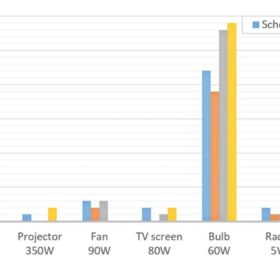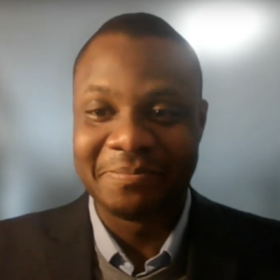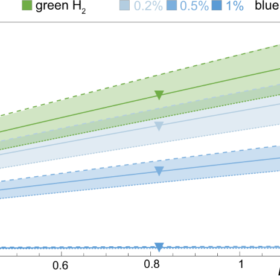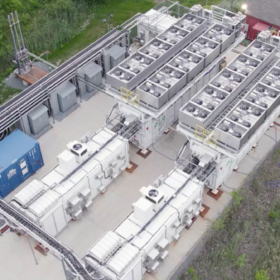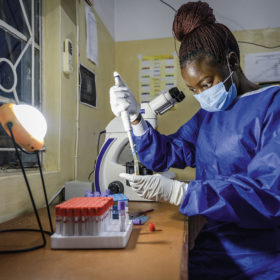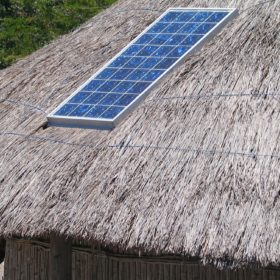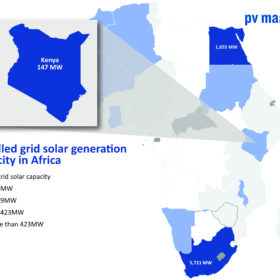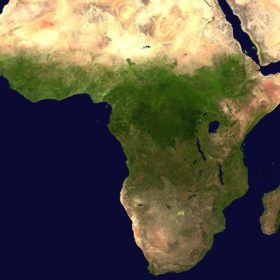Second-life batteries might beat new ones on solar LCOE in remote locations
UK scientists have discovered that second-life batteries could provide a lower levelized cost of electricity (LCOE) than conventional batteries in school buildings equipped with PV in East African schools. They said the cheapest system configuration uses either 7.5 kW or 10 kW of solar with 20 kWh of storage.
Only5mins! – ‘Additionality’ must be adhered to in Africa’s green hydrogen development
Chigozie Nweke-Eze is an economist, geographer and founder of Integrated Africa Power. He sat down with pv magazine to discuss green hydrogen development in Africa, from the project pipeline to the necessity of “additionality” when it comes to ensuring hydrogen doesn’t become yet another exploited African resource.
The Hydrogen Stream: US team assesses atmospheric methane risk for hydrogen
Princeton University researchers have published a study on how the transition to hydrogen-based energy systems would affect the tropospheric burdens of methane and hydrogen, while Provaris Energy said it is moving forward with its compressed H2 carrier.
The Hydrogen Stream: Fuel cells for backup power
The PEM fuel cell test in New York demonstrated the viability of this technology at 3 MW, the first time at the scale of a backup generator at a data center. Meanwhile, a Spanish-Indian venture will develop up to 300 MW of installed green hydrogen production capacity in the Iberian Peninsula, and a Norwegian-German partnership aims to have a demo track powered by a fuel cell system on the road in mid-2023.
Solar auctions to replace feed-in tariffs in Kenya
Attendees at the Renpower Kenya clean energy event in Nairobi were told there will be a changeover in incentive schemes in 2022 with mature technologies no longer benefiting from fixed payments.
A new day at sunset
For the many millions of people in sub-Saharan Africa who lack access to electric lighting, sunset brings an almost enveloping dark. But Light Libraries is one handy solar-powered program that brings an affordable end to darkness for school students. pv magazine sat down with Sofia Ollvid from SolarAid to discuss how these libraries work.
More than 100,000 more Kenyan households could get solar after $8m investment
EU development body Edfi Electrifi and impact investor Oikocredit will each take a $4 million stake in Canadian off-grid home panel business Solar Panda.
Kenya defines net-metering rules for solar
Kenya’s new net-metering regulations will apply to PV systems up to 1 MW in size.
German solar supplier lands fresh $3m from EU entity
Redavia, which leases plug-and-play solar systems to commercial clients in Africa, secured the fresh credit line after settling a previous $2 million loan supplied by the EDFI ElectriFI European development finance institution.
‘African countries must unite to establish a green hydrogen economy’
Only by working together can African nations overcome the obstacles to exploiting their abundant renewables resources and producing affordable green hydrogen – for use at home and in a European economy keen to wean itself off Russian gas, an online event has been told.
